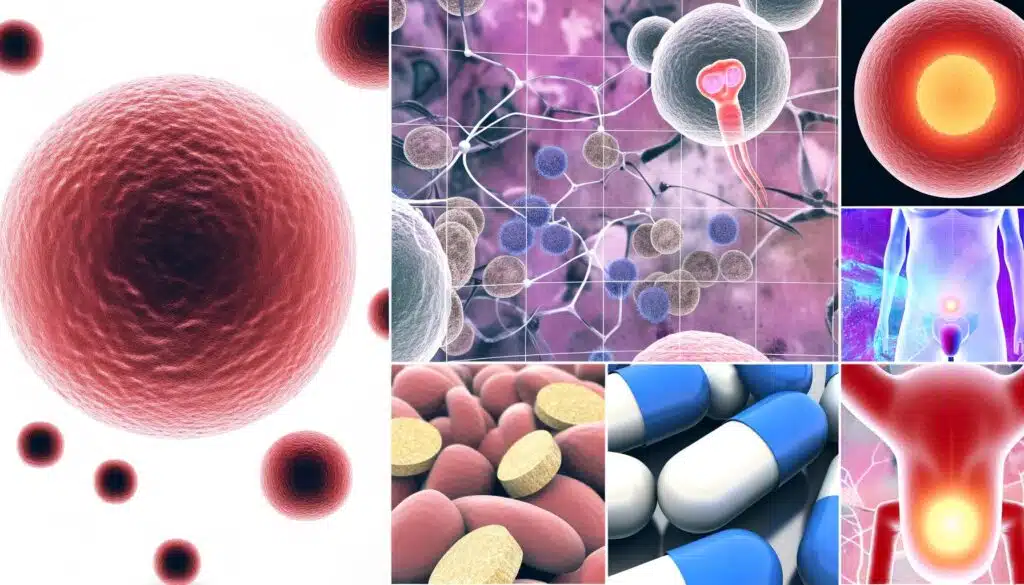Understanding Prostate Cancer: Symptoms and Treatment Options
Prostate cancer is a significant health concern affecting many men worldwide.
Related searches

Recognizing Prostate Cancer Symptoms
The early detection of prostate cancer can greatly influence the effectiveness of treatment. Understanding the symptoms is crucial for early diagnosis. Often, early prostate cancer shows no symptoms, but as it progresses, several signs may become apparent. Common symptoms include:
📌 Frequent urination, especially at night
📌 Difficulty starting or stopping urination
📌 Weak or interrupted urine flow
📌 Blood in urine or semen
📌 Discomfort in the pelvic area
📌 Persistent pain in the hips, back, or pelvis
It's important to note that these symptoms can also be indicative of other health conditions, and having them doesn't necessarily mean one has prostate cancer. However, experiencing any of these symptoms warrants a consultation with a healthcare professional to rule out or confirm the diagnosis of prostate cancer.
Diagnostic Approaches for Prostate Cancer
When it comes to diagnosing prostate cancer, healthcare professionals employ several methods to ensure accuracy. The process often starts with a routine screening test, such as a prostate-specific antigen (PSA) test, which measures the level of PSA in the blood. Elevated levels may indicate the presence of prostate cancer, although high levels can also be due to benign prostate conditions. Another common method is a digital rectal exam (DRE), where a doctor physically examines the prostate for any irregularities.
If these initial tests suggest the potential for cancer, more definitive diagnostic procedures are employed. These may include:
✅ Ultrasound: Uses sound waves to create an image of the prostate.
✅ Biopsy: Involves taking a small sample of prostate tissue to be examined under a microscope.
✅ MRI or CT scans: Help in assessing whether cancer has spread to other parts of the body.
These diagnostic tools enable healthcare providers to not only confirm the presence of prostate cancer but also determine its stage, which is vital for creating an effective treatment plan.
Treatment Options for Prostate Cancer
Treatment for prostate cancer varies depending on several factors, including the stage of cancer, the patient's age, and overall health. Here are some of the most common treatment options:
📍 Active Surveillance: Typically for low-risk, slow-growing cancers, where regular monitoring is done but no immediate treatment is given.
📍 Surgery: Involves the removal of the prostate gland, especially in cases where the cancer is localized.
📍 Radiation Therapy: Uses high-energy rays to kill cancer cells, often used for both localized and advanced cancers.
📍 Hormone Therapy: Aims to reduce or block the production of hormones that fuel cancer growth.
📍 Chemotherapy: Uses drugs to kill rapidly dividing cancer cells, generally used when cancer has spread beyond the prostate.
Each of these treatments has potential benefits and possible side effects, and decisions about which to pursue should be made in collaboration with an oncology specialist.
Managing Life with Prostate Cancer
Living with prostate cancer entails not only dealing with the physical aspects of the disease and its treatment but also addressing emotional and psychological issues. Many patients and their loved ones may experience stress, anxiety, or depression. Therefore, psychological support is crucial. Support groups can offer immense help since they provide a platform for patients to share experiences and coping strategies.
Moreover, maintaining a healthy lifestyle can positively impact treatment outcomes. Patients are advised to:
💼Follow a balanced diet rich in vegetables, fruits, lean meats, and whole grains.
💼Engage in regular physical activity tailored to their capacity.
💼Avoid smoking and limit alcohol consumption.
💼Attend regular check-ups and follow post-treatment monitoring plans carefully.
Such lifestyle adjustments not only improve general well-being but also enhance the body's ability to fight cancer and tolerate treatment better.
Future of Prostate Cancer Treatment
The future of prostate cancer treatment looks promising, with ongoing research and advancements in medical technology. Innovations such as targeted therapies, genetic testing, and personalized medicine are paving the way for more effective treatments with fewer side effects. Researchers are also exploring immunotherapy, which involves boosting the immune system to fight cancer cells more effectively.
Precision medicine, which tailors treatment based on an individual's specific genetic makeup and the genetic profile of their cancer, is gaining traction. This approach increases the likelihood of treatment effectiveness while minimizing unnecessary exposure to treatments that are unlikely to benefit the patient.
Continued support for research and innovation, as well as public awareness campaigns about prostate cancer symptoms and treatment, is essential for reducing the impact of this disease and improving outcomes for patients globally.

5 Proven Weight Loss Hacks You Need to Try in 2025

Break Free From Darkness Quick Tips To Overcome Depression

Finding the Best Hearing Aid for Seniors

Why More Americans Are Turning to Online Pharmacies for Their Medications

Compare the Best Allergy Medicine for Adults in 2025

Gentle Pain Relief And Lifestyle Tips For Active Seniors







